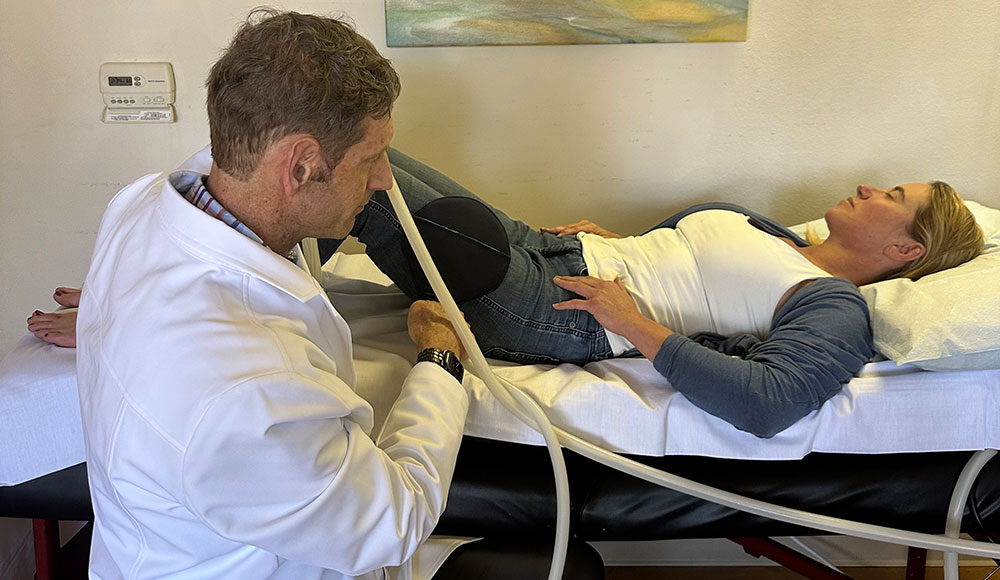Understanding inflammation and how to cool it down
Inflammation has become the wellness buzzword of the decade. It’s blamed for everything from brain fog to belly bloat and linked to chronic conditions ranging from arthritis to anxiety. But here’s the catch: inflammation itself isn’t the enemy. In fact, it’s your body’s built-in defense system, a way of repairing damage and fighting off invaders.
The real problem comes when this fiery defense never shuts off. Instead of healing and moving on, your body simmers in a constant state of slow burn, quietly fueling disease over time. And in today’s culture of stress, processed food and too little sleep, it’s no wonder so many of us are stuck in this cycle.
To better understand inflammation—and what we can actually do about it—I spoke with three local experts: Dr. Michelle Bean, Dr. John Grady and wellness practitioner Samantha Matthews.
What precisely is inflammation?
Dr. Grady invites you to “think of it as your body’s ‘repair crew.’ If you cut your finger, immune cells rush in to protect and heal. That’s short-term inflammation, and it’s essential. But when the system stays switched on long after the job is done, the same repair crew begins to cause damage.” Dr. Bean confirms that over time, chronic inflammation raises the risk of heart disease, diabetes, arthritis and autoimmune conditions.
Why is it such a big deal right now?
According to Dr. Bean, most people don’t realize inflammation is the silent driver of disease. Instead, it shows up disguised as diabetes, cognitive decline, or autoimmune disorders. Doctors often treat the symptoms without addressing the underlying fire. Matthews and Dr. Grady add that stress, poor sleep, processed foods and even social isolation all keep the immune system on high alert. The good news? Healthy habits can calm the flames—if we start addressing them early.
How do you know if inflammation is affecting you?
It’s not always obvious. Joint pain, back or neck stiffness, brain fog, fatigue, digestive issues and even feeling unusually tired after eating can all be signs. “If you’re dragging through the day or achy for no reason, your body may be waving the inflammation flag,” Matthews says.
What role does food play?
Here’s where things get both straightforward and surprising. The usual culprits—sugar, refined carbs, alcohol, and fried or processed foods—absolutely stoke inflammation. But Dr. Bean points out another trigger: stress. Chronic stress can weaken the gut barrier, leading to what’s often called “leaky gut.” When this happens, even healthy foods can cause inflammatory responses in the body.
On the flip side, a Mediterranean-style diet is one of the best natural ways to fight inflammation. That means colorful produce, omega-3 rich fish like salmon, extra-virgin olive oil, nuts, beans, and anti-inflammatory herbs like turmeric and garlic. As Matthews says, “If it can sit on a shelf for months, it probably fuels inflammation. If it’s fresh and colorful, it likely cools it down.”
Beyond food: movement, sleep and stress relief.
Food is powerful, but it’s only part of the puzzle. Movement—even simple walking, stretching or light strength training—signals your body to relax and repair. Sleep is equally non-negotiable: when we shortchange rest, our body can’t heal, and inflammation builds. Stress management may be the most important factor of all.
“Stress drives inflammation, and inflammation drives disease,” Dr. Bean says. Breaking the cycle means finding daily ways to calm your nervous system. Yoga, journaling, learning something new, playing with your dog or spending time with friends all help. Matthews agrees: “Move your body, protect your sleep, and find ways to quiet stress. Those three together are just as powerful as food.”
So what’s the first step?
Dr. Bean recommends getting tested. Specific blood markers can show if your body is running systemic inflammation, yet most doctors don’t routinely check for them. Matthews and Dr. Grady suggest starting with something simple, like a daily walk in the redwoods or along the coast. Fresh air, gentle movement and a calmer mind can go a long way.
For those looking for deeper support, local options abound. Harbor Health Center offers advanced therapies like Pulsed Electromagnetic Fields and red-light treatments to lower systemic inflammation. Dr. Bean recommends joining a structured program such as the October Challenge at SoulCare Studios, which combines yoga, anti-inflammatory meal planning and functional medicine support.
In the end, taming inflammation isn’t about quick fixes—it’s about steady, sustainable practices that lower stress, fuel your body with real food and help you restore balance. The fire may be part of our natural defense system, but learning how to keep it in check just might be one of the most important health moves you can make.
The October Challenge begins Oct. 1, with orientation on Sept. 28 at SoulCare Studios (soulcarestudios.com).
Learn more about Harbor Health Center’s services at harborhealthcenter.com.











